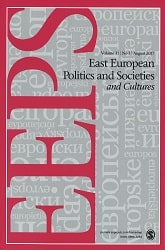This Far, but No Further? Benefits and Limitations of EU Gender Equality Policy Making in the Western Balkans
This Far, but No Further? Benefits and Limitations of EU Gender Equality Policy Making in the Western Balkans
Author(s): Andrea SpeharSubject(s): Gender Studies, Civil Society, Governance, EU-Approach / EU-Accession / EU-Development, Sociology of Politics, EU-Legislation
Published by: SAGE Publications Ltd
Keywords: European Union; gender equality; Croatia; FYR Macedonia; women’s movements;
Summary/Abstract: The European Union (EU) is one of the world’s most important policy promoters for gender equality. This article examines the benefits and limitations of EU gender equality policy making in two Western Balkan countries, Croatia and FYR Macedonia. Besides analyzing specific gender policy developments that can be attributed to the EU, particular focus is put on the women’s movement activists’ perceptions of the impact that accession may have on women and gender equality. The study demonstrates that while the Croatian and Macedonian EU accession processes have been beneficial to the introduction of new gender legislation and institutional mechanisms for the advancement of gender equality, the EU gender strategy has also shown serious limitations. Among these—and perhaps the most fundamental—is the strong contrast between stated goals and their actual implementation. I argue that unless profound institutional changes as well as changes in political culture take place in Croatia and Macedonia, the poor compliance with EU gender equality norms and policies will be hard to overcome.
Journal: East European Politics and Societies
- Issue Year: 26/2012
- Issue No: 02
- Page Range: 362-379
- Page Count: 18
- Language: English
- Content File-PDF

